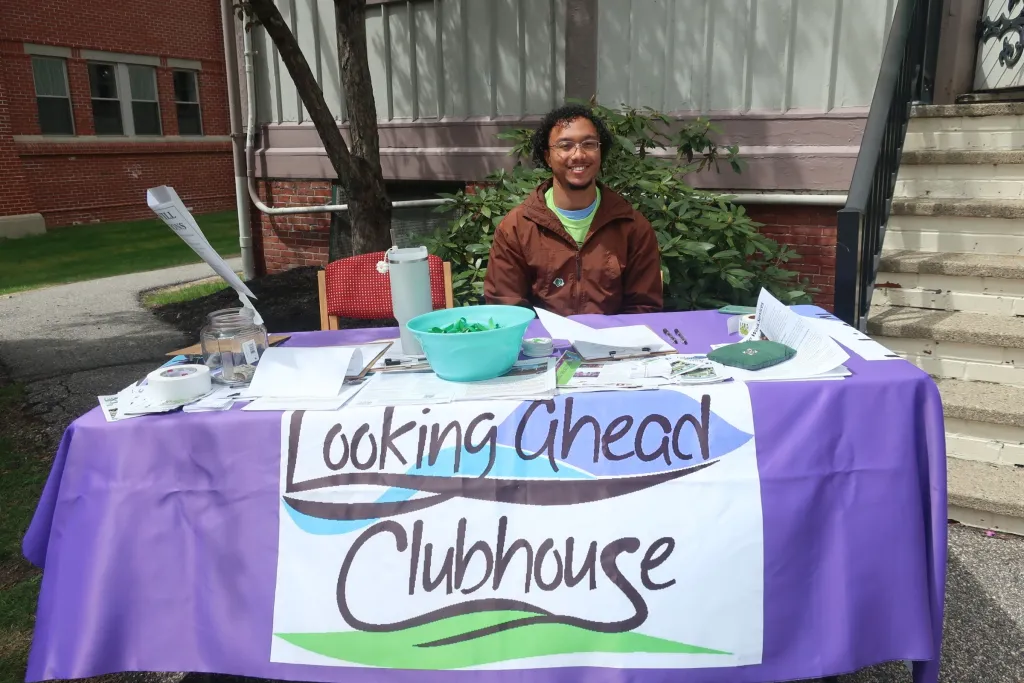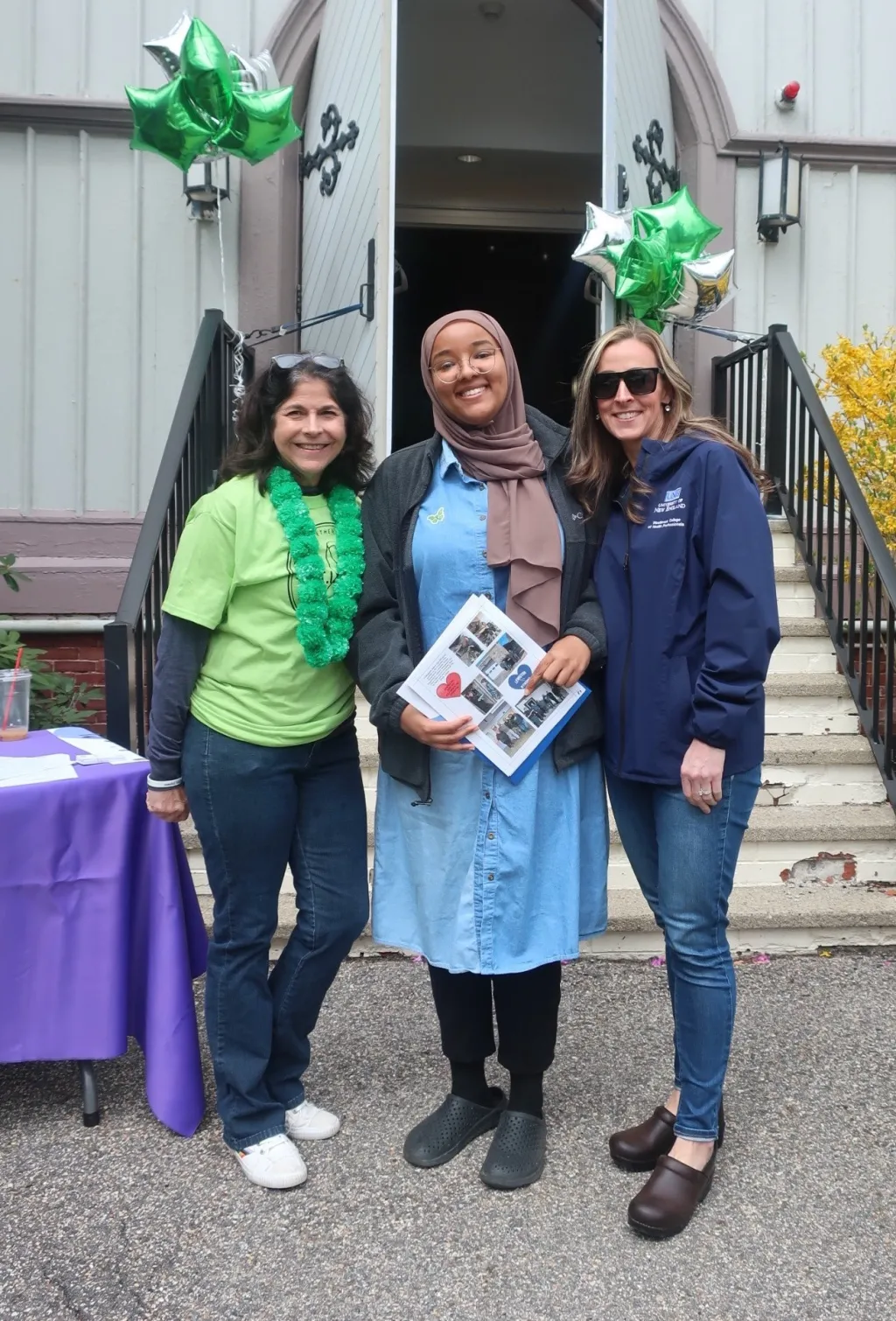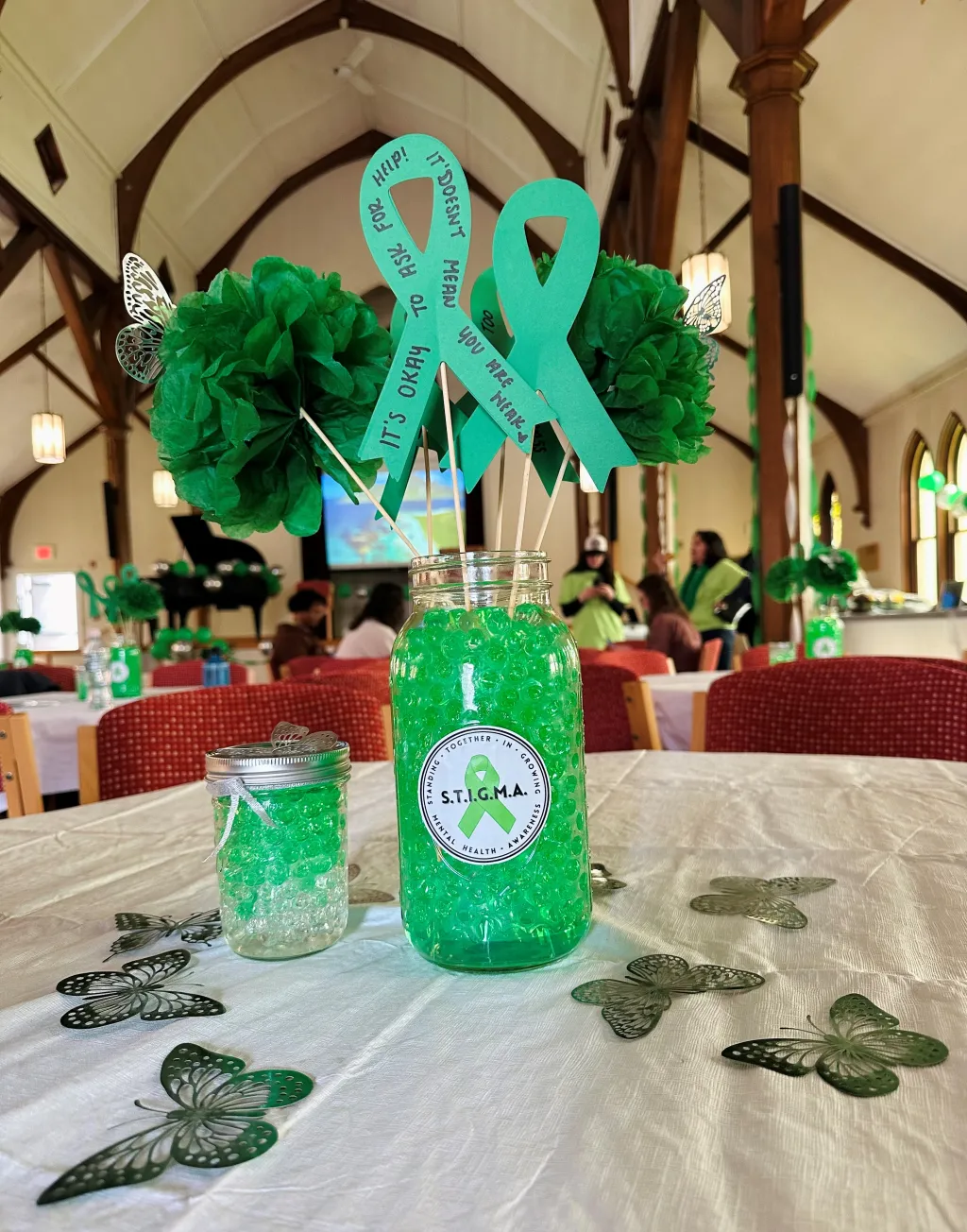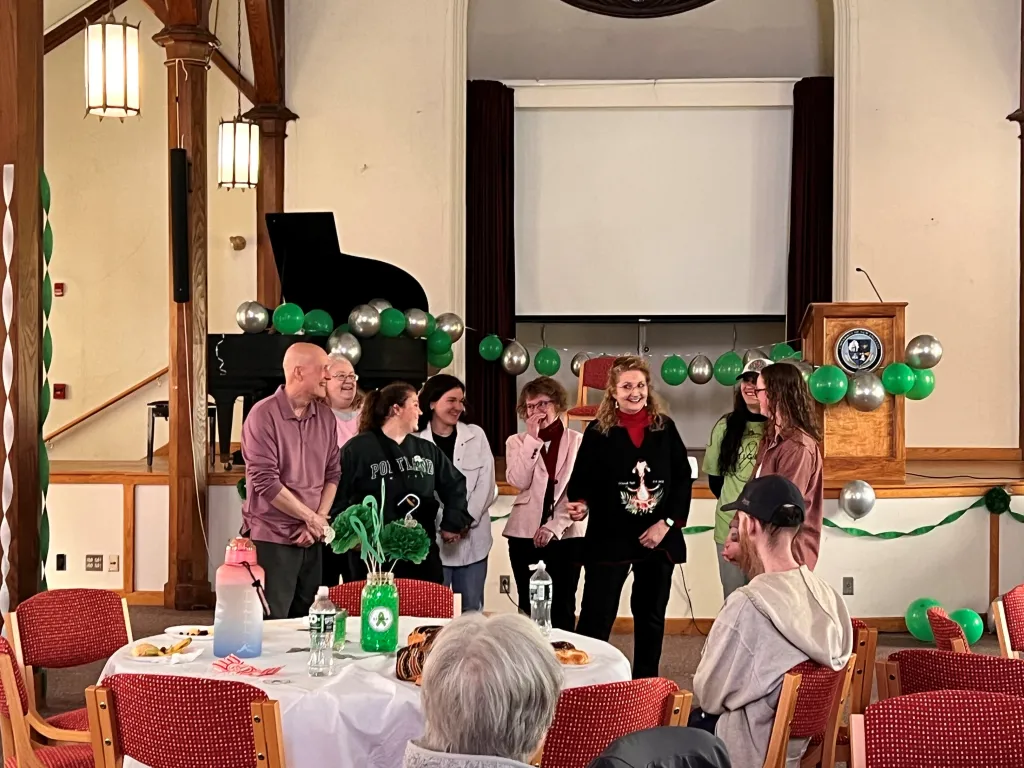Occupational Therapy students work to end the stigma of mental illness
OT students partner with Looking Ahead Clubhouse to hold an event in support of mental health awareness
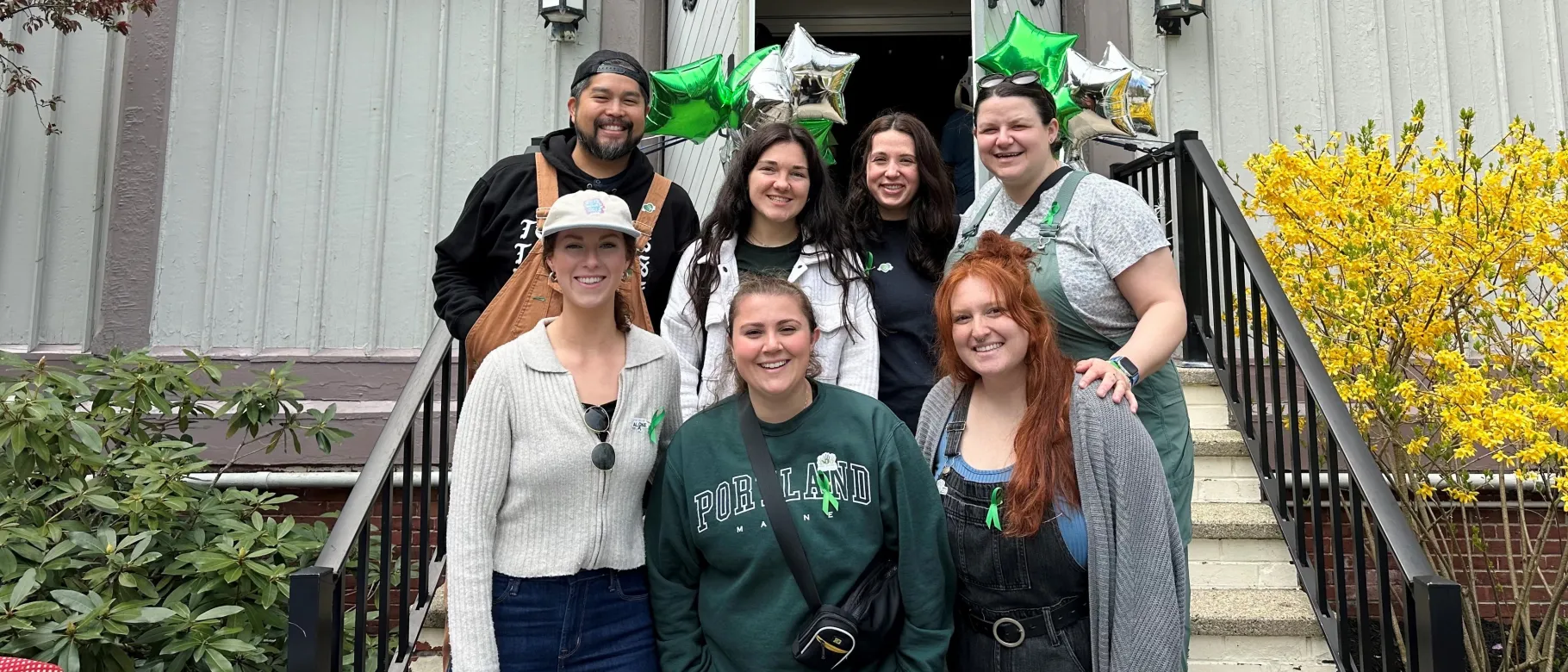
Students from the University of New England’s Master of Science in Occupational Therapy degree program, in partnership with colleagues from Looking Ahead Clubhouse in Lewiston, held an event in support of mental health awareness on Saturday, May 11.
Called Standing Together in Growing Mental Health Awareness, or S.T.I.G.M.A., the event was held on UNE’s Portland Campus for the Health Sciences and intentionally coincided with Mental Health Awareness Month, celebrated annually in May.
The event brought together various stakeholders united for the common cause of raising awareness of the centrality of mental health to overall health and well-being.
S.T.I.G.M.A. also addressed ways to eliminate the stigma that oppresses those with psychiatric labels and often prevents people from seeking help, said Carol Lambdin-Pattavina, M.S.O.T., O.T.D., FAOTA, associate professor in UNE’s Department of Occupational Therapy.
“In health care, it is common to treat one individual at a time,” Lambdin-Pattavina said. “Planning and bringing the S.T.I.G.M.A. event to fruition provided our UNE occupational therapy students with the opportunity to effect greater change at the community level.”
Looking Ahead Clubhouse (LAC) is a psychosocial clubhouse modeled after Fountain House in New York City, which was founded in 1948. As a member of Clubhouse International, LAC is a community-based program where individuals experiencing mental health challenges can make friends, get an education, find a job, and create a network of support.
Clubhouses are based on a “work-ordered day,” which Lambdin-Pattavina said closely aligns with many occupational therapy principles, including the importance of routines and the centrality of occupational participation to health and wellness.
Students worked with LAC for the past year to plan the S.T.I.G.M.A. event, which featured a day filled with shared narratives, fellowship, and dialogue about the negative impact of stigma. The event was entirely supported by generous donations from nearly 50 sponsors.
In addition to a band, a humorist, chair yoga, and a mindfulness session, a silent auction was held onsite. Nearly $2,000 were raised, and the proceeds will support LAC and scholarships for OT students who demonstrate a commitment to supporting mental health and wellness in practice and eradicating the damaging effects of stigma, Lambdin-Pattavina said.
